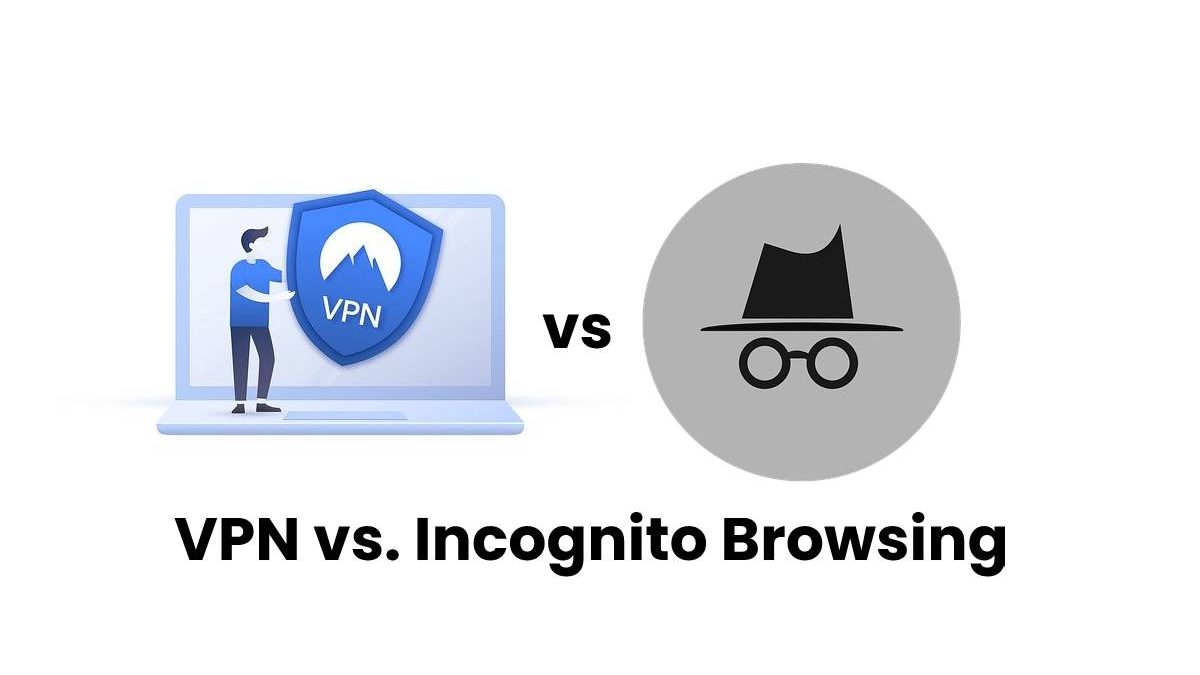VPN Vs. Incognito Browsing
The internet is vast and comes with many challenges and pressures. Enforcing security on the internet is not an easy task. Cybercrime is an apparent problem that cannot be ignored. Malicious individuals on the internet are taking advantage of poorly secured devices accessing online platforms. They monitor, track and steal personal and critical data from poorly protected devices and use it for their benefit. Public networks face the highest risk in this regard, given their redundant security protocols.
Internet users are always looking to secure themselves as they pursue their endeavors online, whether for business or leisure. Internet users can use many measures to protect online users and their data. Virtual Private Networks and Incognito Browsing are both used as security measures for surfing the internet. They, however, work differently and have different applications. Understanding the difference between the two is vital in determining the most efficient for online security and where each can be applied. This article is the Best Vpn Help guide that will break down and compare both VPN and Incognito browsing.
Incognito Browsing
Incognito mode is also referred to as private browsing. This mode is meant to hide your online activity from other users on the same device by clearing your history and cache as soon as the browser is closed. Contrary to popular belief, it does not mask your activity from online third parties such as the Internet Service Provider and Search engines. Anyone monitoring your online connection from the outside can access all this sensitive data. Therefore, incognito mode is better suited to protecting your data when using other people’s devices or shared devices. All your data and browsing history is cleared once you leave.
This private browsing mode is built on a few principles. The searches made by the user are not in any way saved to the device or its browsing history. Cookies received from websites are cleared immediately the browsing tab is closed or the browser terminated. Files and pages bookmarked or downloaded by the user may be saved to their device. While this data is not saved to your device, it is available for your Internet Service Provider and relevant search engines.
When you go online, your browser usually shares some data with the websites you access. This includes your live location, previously visited sites, time stamps for those visits, and information on what device you are using. Search engines and websites use this gathered data to tailor ads for you based on your internet activity. This data may be used to locate you and monitor your movement online. Incognito mode works to exclude your browser from the OS running on your device. This is meant to keep websites from telling who and where you are. This exclusion is also meant to prevent website access to your browsing history but does very little towards this. As long as the browser is still open, the website and your ISP can get real-time data from your device. As soon as your browser goes off, the cookies are deleted no data is transmitted.
How VPNs Assist
Virtual Private Networks sever your direct connection with the internet making it hard for third parties to track you. A VPN tunnels your data to a server in a completely different location and makes it appear as if you are accessing the internet from that network. In doing so, it changes and masks your original IP address. Online websites and individuals can generally use this IP address to identify your device, its location, and your internet activity. While VPN does not block cookies, it influences the data they report back and make the website believe you are in a different location.
VPNs guaranteeinternet privacy and security for internet users by also scrambling and encrypting their personal data and online activity. Once this data is encrypted, it can only be read by the end to end parties, the sender and the receiver. This added to the anonymous IP address makes it hard to monitor and track your browsing activity, location, device information, and personal data. This makes VPN services the ideal solution for people looking to get their online freedom. VPNs should primarily be used when accessing the internet through unsecured public wireless networks. This makes it hard for strangers using the same network to access your device or monitor what you are doing.
Why Use a VPN
Your personal online data is not always safe with your Internet Service Provider. Third parties such as government agencies and even cybercriminals can get your personal data from an ISP. While ISPs try to implement the most stringent security measures, your collected metadata can fall into the wrong hands. To keep this from happening, many people use VPNs to deprive their internet service providers of critical data that could be used against them.
There are many other benefits to using a VPN service. This service allows you to change your IP address to read a location in another country. Users looking to circumvent censorship blocks on online content restricted in their area can change their location and IP address to an area with no such restrictions. This allows them to access any content they want on the internet freely. VPNs can also be similarly used to access services and websites restricted to specific regions. This is done by matching your masked location to that region, making it appear that you are accessing the website from that region.
Incognito browsing is a viable security measure of online security but is not as competent as utilizing a Virtual Private Network. The scope of cover given by incognito browsing only stretches to physical access of your device. On the other hand, VPN makes sure that no one online can access your devices, personal data, and location. Incognito browsing lacks these capabilities. In a world where everything, from billing to banking transactions are done online, a VPN is a more effective solution. However, people who want to securely browse the internet can use these two in tandem. Applying both incognito browsing and a VPN service will be a formidable security measure to ensure you are not easily breached.
Related posts
Sidebar
Recent Posts
The Best Forex Brokers for Beginners
Since COVID-19 first popped up, interest in the forex market has increased dramatically. Knowing how to get involved with minimal…
Maximizing Success: The Symbiosis of Dedicated Software Development Teams and Product Design Services
The Symbiosis of Dedicated Software Development Teams and Product Design Services In the rapidly evolving landscape of technology, businesses aiming…



